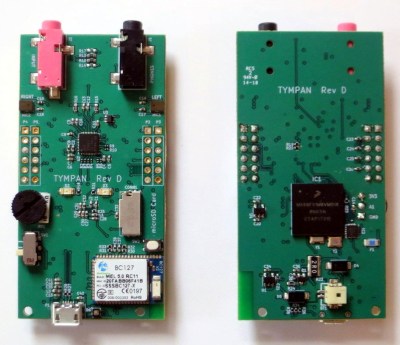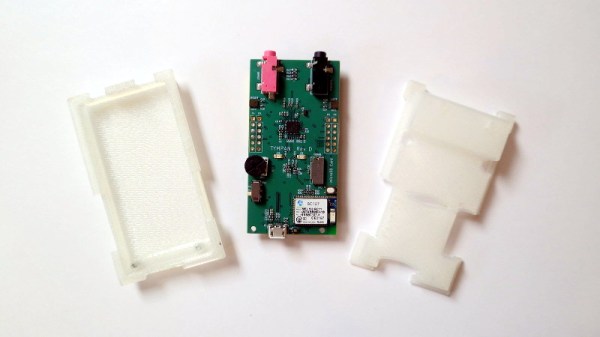If you’re the kind of person who’s serious about using open source software and hardware, relying on a medical device like a pacemaker or an insulin pump can be a particular insult. You wouldn’t trust the technology with your email, and yet you’re forced to put your life into the hands of a device you can’t examine yourself. Unfortunately we don’t (yet) have any news to report on open source pacemakers, but at least now there’s an open software and hardware hearing aid for those who need it.
 The Tympan project aims to develop a fully open source hearing aid that you can not only build yourself, but expand and modify to fit your exact specifications. Ever wanted to write code for your hearing aid with the Arduino IDE? No problem. You want Bluetooth, I2C, and SPI? You got it. In truth we’re not sure what this kind of technology makes possible just yet, but the point is that now those who want to hack their hearing aids have a choice in the matter. We have no doubt the community will come up with incredible applications that we can’t even begin to imagine.
The Tympan project aims to develop a fully open source hearing aid that you can not only build yourself, but expand and modify to fit your exact specifications. Ever wanted to write code for your hearing aid with the Arduino IDE? No problem. You want Bluetooth, I2C, and SPI? You got it. In truth we’re not sure what this kind of technology makes possible just yet, but the point is that now those who want to hack their hearing aids have a choice in the matter. We have no doubt the community will come up with incredible applications that we can’t even begin to imagine.
But these open hearing aids aren’t just hackable, they’re affordable. Traditional hearing aids can cost thousands of dollars, but you can buy the Tympan right now for $250. You don’t even need to check with your health insurance first. Such a huge reduction in price means there’s a market for these outside the hardware hacking crowd, and yet another example of how open source can put cutting edge technology into the hands of those who would otherwise have to go without.
The latest version of the Tympan hardware, revision D, is powered by the Teensy 3.6 and features a Sierra Wireless BC127 Bluetooth radio, dual MEMS microphones, and even a microSD slot for recording audio or logging data. It might be a bit bigger than the traditional hearing aids you’re used to seeing, but with an external microphone and headphone setup, the wearer could simply keep it in their pocket.
We’ve seen DIY hearing aids before, but unless you’re willing to carry a breadboard around with you, they’ve generally been limited to proof of concept sort of builds. We’re glad to see a mature project like Tympan join the growing movement for open source medical hardware; it’s a another big step forward towards democratizing these critical pieces of technology.











